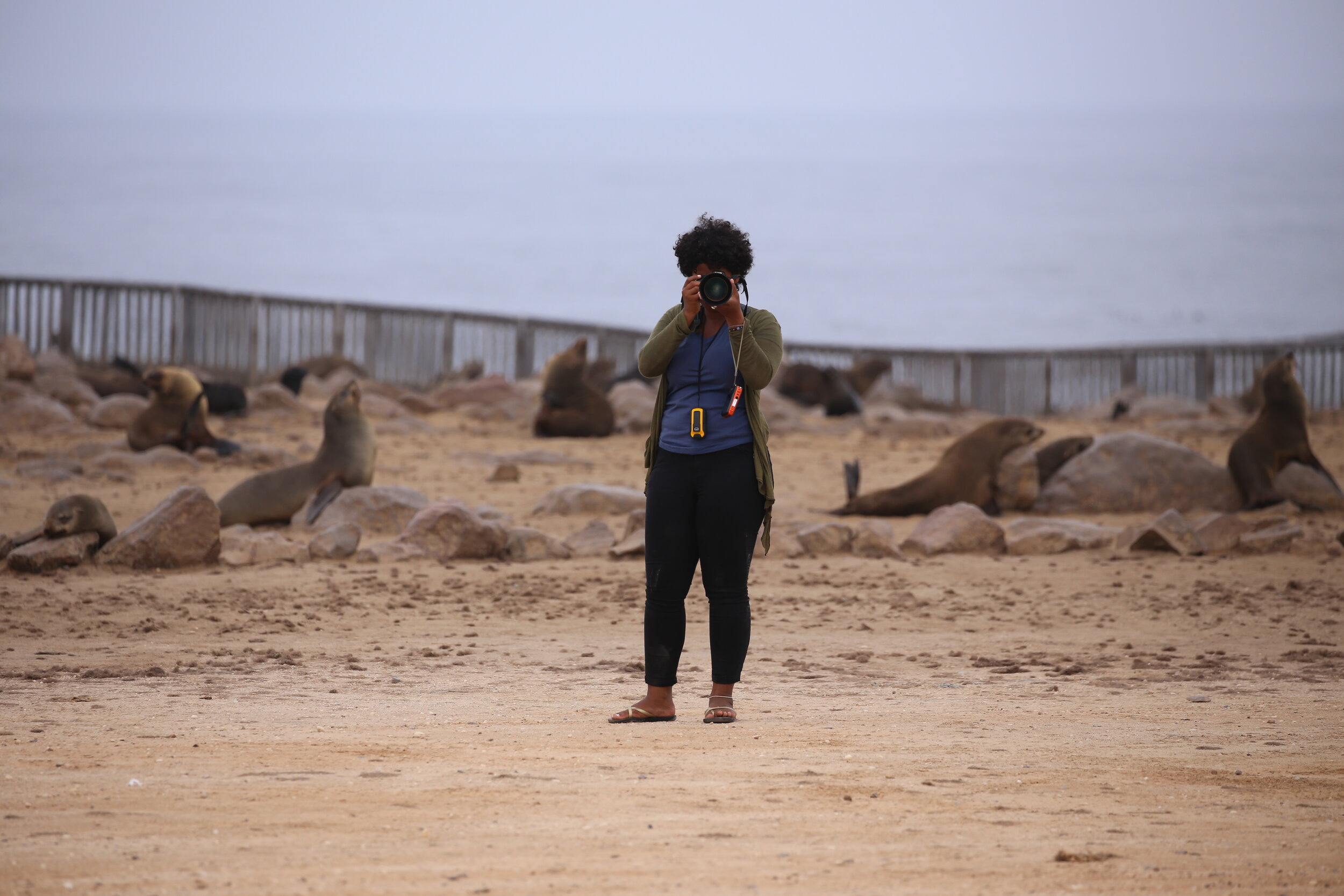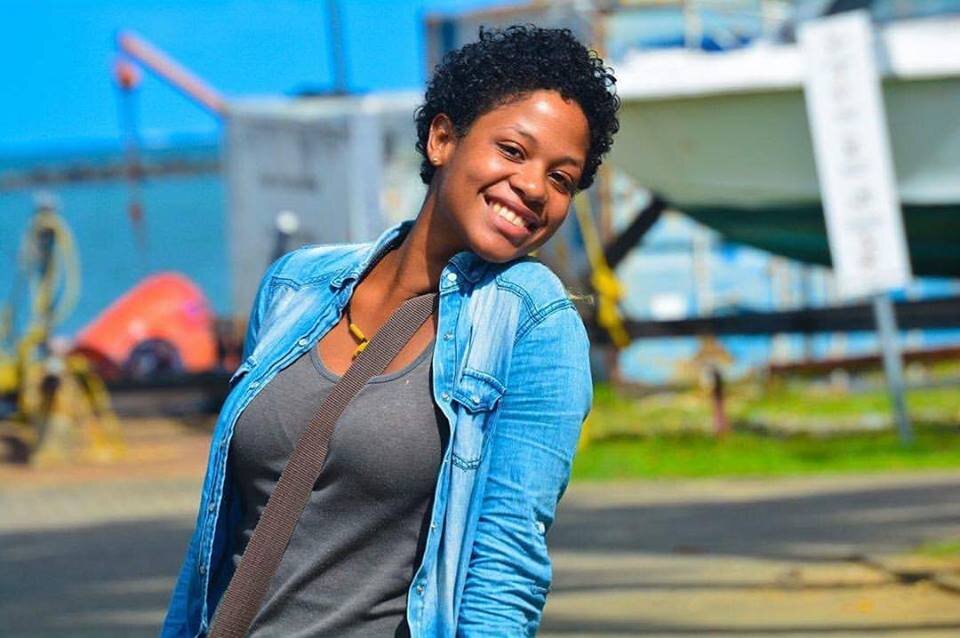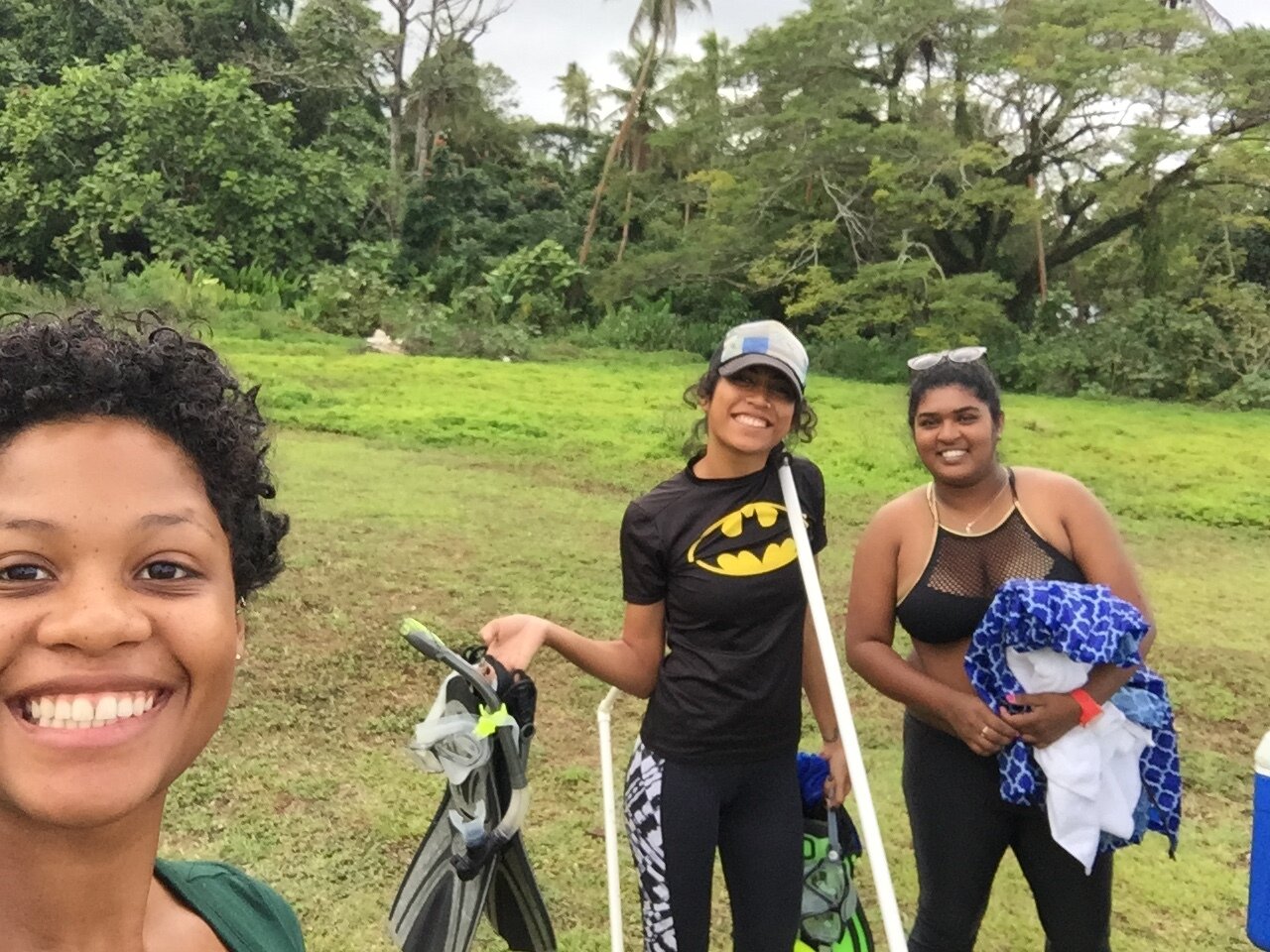Ida-Wenona Hendricks: A Collection of Personal Experiences by Black Women in Marine Science
Ida-Wenona Hendricks is a Tropical marine biologist, naturalist and budding taxonomist; she shares with us her journey as a Black African female marine biologist. Her unique experiences and the hurdles she has had to overcome in the industry. As a Namibian marine biologist Ida has faced repercussions for questioning neo-colonial practices in her home country. In addition, Ida is helping women of colour to protect their beautiful coils from saltwater in an eco-friendly way.
I am a 26-year-old Marine Biologist. I am Black, female and from Africa. Which would seem cool to most people, until you get called a nigger for the first time with ill intentions, and your whole sunflowery world is shattered. Don't get me wrong, I am 100% proud of my heritage, but it's been nothing short of challenges. I am a Tropical Marine biologist, a budding taxonomist and am passionate about making, experimenting and using natural products that would benefit not only the ocean but all of nature. I was raised in a setting where my grandmother and I walked to the city in 47 + heat every Saturday. I would go out to the bush Sunday's with my parents. Camping in areas where there are no lights, cell phone reception or electricity. Nothing but stars and the distant call of lions and jackals. The days we weren't able to go out, we watched Steve Irwin and David Attenborough, which is where my fascination with the ocean began. I remember being in the 9th grade and asking my mom "what is Steve Irwin as a professional", the fact that she searched it to find out and not respond saying "he's crazy my child" already shows how supportive she is. Hahaha! We found out he was a marine conservationist, and that's the day I knew what I was going to be. I started my career volunteering at every possible opportunity to understand what marine biology was because Namibia has cold waters and the few marine biologists that are their work for fisheries or mining companies. As soon as I finished High school, I travelled for the first time and volunteered with Coral Cay Conservation in Cambodia and the Philippines to get exposure to tropical marine waters.
I was accepted to my dream school, James Cook University, yay! But quickly reality hit and my Visa was denied because even-though I studied under the Cambridge syllabus, the Australian government only accepted English proficiency from South Africa. This was the moment I knew that becoming a marine biologist was not going to be easy. So I got a job selling truck parts to save up some money, and my mom helped me pay to write a TOEFLE test. I didn't stop applying to schools, and eventually, it paid off. I got accepted to the University of South Pacific, and the next semester I was off to Fiji for four and a half years. Which is half a world away from home, but I threw myself into volunteer jobs, research work and anything that would keep me busy while everyone else was able to go home and visit their families. I went home once a year during the long break as that was all we could afford even with all the loans we took out so that I could study. The upside is I have gained so much experience in the field when I wasn't able to go home. I graduated and it was such a proud moment when I looked at my name, the only Namibian student there. After graduation, one isn't always prepared for how hard it is to find a job in the marine and conservation fields. I ended up doing an internship based on bioacoustics research in my home country, and they allowed me to do my own research project on Black-Backed Jackal and how they live in tandem with seals and the ocean. I loved the work, the research and how much I was learning, the people were great at first too. I was unsettled by the fact that these were foreign people in my own country that were getting scientific papers, getting paid internships and grants to study in Namibia when no Namibians benefited or received mentions in the research papers. When I asked questions about it, I was told: "there aren't any Namibians that are capable". I was vocal about how uncomfortable this made me feel, which made them feel uneasy too. I got into trouble for speaking up about racial discrimination from someone that had worked closely with this company for a while. I was asked to apologise so that they could re-establish connections and shortly after asked to forfeit my internship and leave. Sadly this hasn't been the only racial or neo-colonial altercations that I have experienced in the field.
Being in an industry that is portrayed by social media as a job for fair, slim girls has been depressing yes, but oh so encouraging because it has fuelled me to make a difference. I know very few women of colour in conservation but what’s perhaps even sadder is the fact that I know so many more that have told me that they’ve wanted to go into conservation, but either lacked the support, the finances or have the mentality that “black girls can’t do that”. Being a black girl with black hair has not been easy either. The salt water does a significant number on one’s kinks and curls. Youtube tutorials don’t help either because they are not made for women who need to be in the water 4 to 5 times a day on average. To support black girls in the industry, I started making and sharing natural, reef-friendly tips on how to care for our types of hair and skin. Something that is completely lacking in the cosmetic industry. I collaborate with as many women as possible, and I assist with CV setups, cover letter tips and share tips on how to get exposure in the marine and conservation fields, not based on the colour of our skins or backgrounds but so that we give people no other choice. It has by no means been easy, but things are changing before my eyes, and I have never been more proud of my bushy hair, dark skin, my culture, my upbringing and the fact that my parents have raised me to always stand up for what is right and to be a go-getter despite the curveballs.






